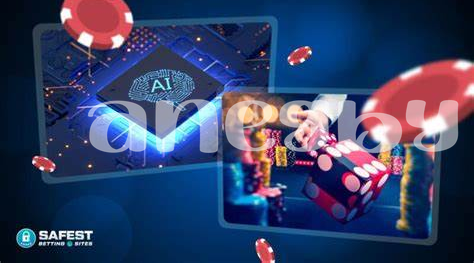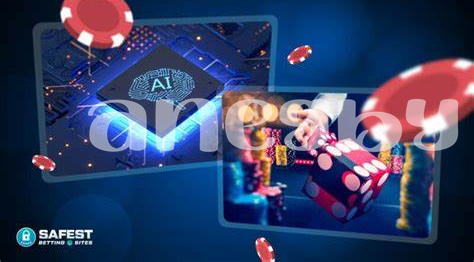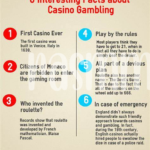Explore How Vr Casinos Are Shaping Nz’s Gambling Scene with Cutting-edge Innovations in Gambling Technologies, Offering an Immersive Experience.
Revolutionising the Future: Vr Casinos in New Zealand
- Immersing Players in a New Reality 🕶️
- The Evolution of Gaming Laws in Nz 📜
- The Tech Behind Vr Casinos Unveiled 🧠
- Comparing Traditional and Vr Casinos in Nz 🎰
- The Social Aspect of Vr Gambling in Nz 👥
- Overcoming Challenges: Privacy and Security 🔐
Immersing Players in a New Reality 🕶️

In the heart of New Zealand’s gaming evolution, virtual reality casinos are transforming the traditional gambling scene into a thrilling, immersive experience, whisking players into a realm where the digital and real worlds blur. Equipped with VR headsets, gamers can step into dazzling, fully interactive casino environments from the comfort of their homes, where every card flip, slot machine spin, and dice roll feels lifelike. The allure of this technologically driven revolution lies in the power to transport users to a space where the exhilaration of gambling ascends to new heights, offering not just a game, but a captivating journey.
Behind this enchanting new reality is a sophisticated array of technology—ranging from advanced VR headsets to motion capture tech—that breathes life into virtual casinos. These platforms are meticulously crafted to replicate the sensory details of physical casinos; they echo the clinking of coins, the shuffle of cards, and even the chatter among players, all encapsulated within a headset. This groundbreaking approach to gaming is not just about the visuals; it’s an all-encompassing sensory encounter. Yet, as players delve into these enthralling virtual worlds, words like ‘bubble pack’ and ‘cold chain’ from traditional pharm lingo seem worlds away, highlighting just how far technology has leapt.
However, navigating this new terrain comes with its set of challenges and concerns—privacy and security being paramount. The gaming industry, in tandem with technological innovators, is tirelessly working to ensure that as players lose themselves in these virtual landscapes, their personal information remains securely under lock and key, or rather, secure digital encryption. Diving into virtual reality casinos is, therefore, not just about embracing the future of gaming—it’s about engaging with a platform where cutting-edge technology meets stringent security measures, ensuring every virtual bet placed is as safe as it is exhilarating.
| Feature | Traditional Casinos | VR Casinos |
|---|---|---|
| Environment | Physical venues | Virtual, immersive worlds |
| Interaction | Direct, face-to-face | Virtual avatars, enhanced communication |
| Accessibility | Limited to location | Accessible from any location with VR setup |
| Games Offered | Standard casino games | Expanded, innovative game varieties |
| Security | Physical and digital security measures | Advanced digital encryption |
This innovative leap in gaming technology offers not just new ways to play, but a transformative experience that redefines what it means to gamble, promising a future filled with unbounded potential and immersive, interactive engagement for gamers across New Zealand and beyond.
The Evolution of Gaming Laws in Nz 📜

New Zealand’s journey through the evolution of gaming laws paints a vivid picture of a country navigating the complex interplay between cultural, social, and technological shifts. Historically, the Kiwi approach to gambling legislation has been characterized by a conservative stance, shaped by the moral and social fabric of the society. However, with the advent of digital technology and innovations in gambling technologies, there has been a discernible shift towards a more liberal and regulated framework. This transition wasn’t without its hurdles, as the goverment grappled with the dual challenge of embracing technological advancements while safeguarding the public against potential harms. The introduction of VR casinos is a testament to New Zealand’s commitment to fostering innovation within a tight regulatory corset, ensuring that the thrill of gambling can be experienced in a safe and responsible manner.
At the heart of New Zealand’s legislative evolution lies a profound understanding of the dynamic nature of gambling, recognizing that laws must adapt to reflect changes in technology and public attitudes. The Gambling Act of 2003 was a landmark moment, providing a solid legal foundation that could accomodate future technological innovations such as VR gambling. This act, along with subsequent amendments, illustrated New Zealand’s proactive approach to regulating new forms of gambling, striking a balance between economic benefits and the potential risks associated with problem gambling. It’s within this legislative environment that VR casinos have found fertile ground, benefitting from clear guidelines that support both developers and users.
Yet, as VR casinos begin to carve out their space within New Zealand’s gambling landscape, the conversation around regulations continues to evolve. Concerns regarding privacy, data security, and the potential for increased gambling harm are at the forefront of this dialogue. The challenge for New Zealand lies in its ability to continously adapt and refine its legislative framework, ensuring that it remains responsive to the ever-changing digital gaming arena. As we stand on the brink of this new era in gambling, there’s a palpable sense of excitement tempered by a commitment to responsible gaming. Through careful management and regulation, New Zealand is not just witnessing an evolution in its gaming laws but is actively shaping the future of gambling in a way that prioritizes innovation, safety, and the well-being of its citizens.
The Tech Behind Vr Casinos Unveiled 🧠

Diving into the realm of virtual reality (VR), one can’t help but marvel at how the digital landscape is being reshaped before our eyes. New Zealand’s VR casinos stand at the forefront of this seismic shift, offering a glimpse into a future where gaming and technology converge in unprecedented ways. The backbone of these innovations in gambling technologies is a complex tapestry of software and hardware, engineered to transport players into immersive worlds where every turn of a card and spin of a slot feels as real as it does in a traditional casino. Yet, what sets these VR platforms apart is not just the high-definition graphics or the realistic sound effects, but the sophisticated algorithms that create a seamless, interactive experience.
Behind the scenes, developers leverage cutting-edge motion tracking and 3D graphics rendering tech, ensuring that actions in the real world translate into the virtual with minimal lag. This synchronization is critical in providing a sense of presence within the virtual casino, making it feel lik every roll of the dice or bet placed is as tangible as in the physical world. Moreover, innovations such as blockchain and smart contracts are being integrated to safeguard transactions, adding an extra layer of security and transparency to the gaming experience.
However, it’s not just about the games or the tech; it’s also about creating a social enviroment that mirrors the camaraderie found in traditional casinos. Social VR platforms enable players from across New Zealand to interact with each other in real-time, share strategies, or simply chat, making the virtual gambling experience not just entertaining but also communal. Despite the advanced technology, challenges such as ensuring user privacy and data security remain paramount. Developers are continuously working on enhancing encryption methods and anonymizing personal data to protect players from potential breaches.
As VR casinos evolve, so too does the need to strike a balance between innovation and ethical considerations. New Zealand is setting a precedent in this digital revolution, showcasing how technology can revolutionize the way we think about and engage with gambling. Through a mixture of technological prowess and a commitment to player safety, the future of VR casinos looks not just promising but exhilarating. With each technological leap, players receive a more enriched gaming experience, one that transcends the boundaries of reality and virtuality, making every visit to a VR casino an adventure unto itself.
Comparing Traditional and Vr Casinos in Nz 🎰
In the heart of Aotearoa, the digital landscape is shifting, transforming the way we interact with the thrill of the gamble. Innovations in gambling technologies have ushered in an era where VR (Virtual Reality) casinos have become the avant-garde interfaces for Kiwi punters, challenging the dominion of traditional gaming dens. The well-trodden carpets and the clinking sounds of physical slot machines, where punters stand shoulder to shoulder, have been the norm. Yet, with the rise of VR casinos, a solitary pair of goggles can transport one into a compendious and immersive casino experience, with no need to queue for your favourite poker table or pokie machine. This shift is not just about the tech; it’s about the experience. Where traditional casinos may offer a “Count and Pour” feel – the tactile sensation of chips and the physical interaction with machines and people – VR casinos offer a “Pharm Party” vibe, a concoction of digital interaction mixed with the adrenaline rush of risk from the comfort of your VR headset.
However, this revolution does not come without its challenges. While traditional establishments are governed by strict regulations to ensure fairness and prevent the ills of gambling, VR casinos bring a new set of challenges to the table, especially in the realm of privacy and security. The concern is not just about the fairness of the games – which in itself is a significant debate – but also about how players’ personal information is handled in the ether of virtual reality. Issues of data breaches and virtual theft have become more prevalent, raising questions about how these new age casinos can protect their patrons. Despite these concerns, the allure of VR casinos remains undiminished for many, promising a future where the lines between the physical and the digital continue to blur. As VR technology evolves, so too will the safeguards, aiming to replicate not just the experience of traditional casinos, but their commitment to player protection as well.
The Social Aspect of Vr Gambling in Nz 👥

Virtual reality (VR) casinos are stirring the pot in New Zealand’s gaming scene, offering a blend of social interaction and gaming innovation like never before. With the advent of VR technology, Kiwis can now enjoy a fully immersive gambling experiance from the comfort of their homes, pushing the boundaries of traditional social gatherings. This evolution seamlessly integrates with New Zealanders’ penchant for both tech and community, offering a new venue for socializing while advancing the nation’s position in the global gaming industry.
Innovations in gambling technologies, particularly VR, are reshaping not only how games are played but also how people come together. Unlike traditional online casinos that might promote solitude, VR casinos are crafting communal spaces where players can meet, chat, and share a virtual drink. Imagine stepping into a digital replica of SkyCity Auckland, but instead of the lone experience of pushing buttons, you’re greeted by avatars of fellow players, ready to exchange tips or simply share a laugh. This camaraderie is akin to the “Pharm Land” of gaming, where every interaction adds a layer of richness to the gaming experience, transforming it from a solitary pursuit into a community activity.
However, the transition to VR gambling isn’t without its challenges. Privacy and security concerns remain at the forefront, necessitating rigorous safeguards to protect users. Just as in a “Pharm Tech’s” world, where precision and trust are paramount, VR casinos must implement robust systems to ensure player safety and data protection. The table below highlights the comparison between traditional and VR gaming environments in New Zealand:
| Aspect | Traditional Gaming | VR Gaming |
|---|---|---|
| Social Interaction | Limited to physical presence | Enhanced by virtual avatars and communication tools |
| Accessibility | Restricted by location and opening hours | Available 24/7 from any location |
| Privacy and Security | Dependent on physical measures | Requires digital safeguarding technqiues |
As the VR casino industry in New Zealand continues to burgeon, it brings forth an exciting era where fun, friendship, and innovation collide, heralding a future where gaming is not just a hobby but a means to connect and thrive within a vibrant, digital community.
Overcoming Challenges: Privacy and Security 🔐
In the virtual landscape of VR casinos, the challenges of privacy and security are paramount. Players want assurance that their data is as secure as an iron vault, free from the prying eyes of virtual stickybeaks. The sophistication of VR technology means that the potential for data breaches could leave players feeling more exposed than ever. However, New Zealand’s VR casino developers are pioneering innovative privacy shields and security measures, drawing from both the high-tech world and traditional practices. They’re employing end-to-end encryption for data transmission, akin to sending information in a sealed, tamper-evident envelope that only the intended recipient can open. Moreover, biometric verification steps up the game by ensuring that the player behind the VR headset is definately the person they claim to be, adding a layer of security as personal as a fingerprint.
On the flip side, the concept of a “pharm party” extends beyond its traditional meaning, with VR casinos creating a controlled safe space, free from the risks associated with physical venues. Here, the risk of theft or physical harm is virtually non-existent, with players able to engage from the safety of their homes. A user’s digital footprint is protected, not just by laws and regulations but by cutting-edge technology specifically designed to ward off digital marauders.
Yet, the challenge remains to ensure that these security measures do not detract from the immersive experience players seek. The balance lies in making security seamless, integrating it so smoothly into the VR environment that players barely notice it’s there. Developers are continuously working on solutions that blend security with simplicity, ensuring that safety measures feel like a natural part of the game, rather than a hindrance.
Looking ahead, the future of VR casinos in New Zealand seems bright, with privacy and security at the forefront of the industry’s evolution. Continuous innovation and improvements in this domain are crucial to maintain player trust and industry reputation. The commitment to overcoming these challenges showcases a dedication to the user’s experience, ensuring that players can immerse themselves in the virtual world with peace of mind, knowing that their privacy and security are prioritised. Through collaborative efforts between government bodies, technology experts, and the gaming community, New Zealand is setting the benchmark for the safe, secure, and responsible future of VR gambling, making it a model for others to emulate.


